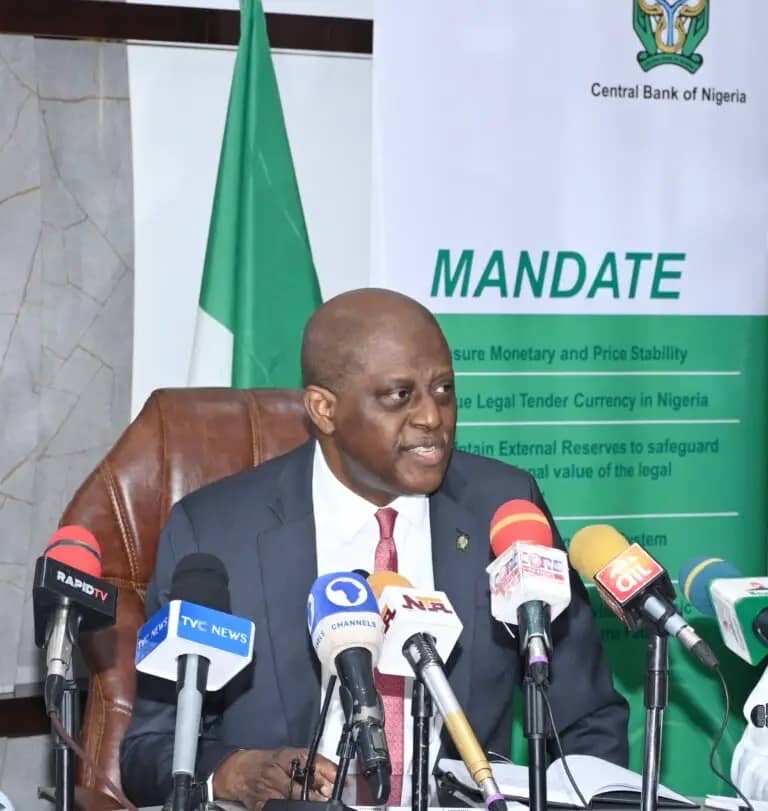Further to the ongoing fiscal and monetary reforms, the Central Bank of Nigeria (CBN), has increased the minimum capital requirement for Deposit Money Banks (DMBs) with national licences from N25 billion to N200 billion.
The apex bank also increased capital requirement for banks with regional licences from N15 billion to N50 billion , and those with international licences from N100 billion to N500 billion.
According to a statement issued by the Acting Director, Corporate Communications Department of the bank, Mrs Hakama Sidi-Ali, the new minimum capital for merchant banks will be N50 billion.
Sidi-Ali also announced that the new requirements for non-interest banks with national and regional authorisations are N20 billion and N10 billion.
The move is coming days after the Monetary Policy Committee (MPC) meeting.
The CBN Governor, Yemi Cardoso had in the meeting , urged Nigerian banks to expedite action on the recapitalisation of their capital base in order to strengthen the financial system.
Meanwhile, a circular signed by the Director, Financial Policy and Regulation Department, Mr Haruna Mustafa, said that all banks were required to meet the new minimum capital requirement within 24 months commencing from April 1 and terminating on March 31, 2026.
According to Mustafa, the move is to enhance banks’ resilience, solvency, and capacity to continue supporting the growth of the Nigerian economy.
Mustafa urged banks to consider injecting fresh equity capital through private placements, rights issues and offers for subscription to meet the new minimum capital requirements.
He also suggested Mergers and Acquisitions (M&As); and upgrade or downgrade of licence authorisation.
He said that the minimum capital shall comprise paid-up capital and share premium only.
“The new capital requirement shall not be based on the shareholders’ fund.
“Additional Tier 1 (AT1) Capital shall not be eligible for meeting the new requirement.
” Notwithstanding the capital increase, banks are to ensure strict compliance with the minimum capital adequacy ratio (CAR) requirement applicable to their licence authorisation.
“In line with extant regulations, banks that breach the CAR requirement shall be required to inject fresh capital to regularise their position,” Mustafa said.
He said that the minimum capital requirement for proposed banks shall be paid-up capital, adding that the new minimum capital requirement shall apply to all new applications for banking licences submitted after April 1.
“The CBN will continue to process all pending applications for banking licences for which a capital deposit had been made and an Approval-in-Principle (AIP) had been granted.
“However, the promoters of such proposed banks will make up the difference between the capital deposited with the CBN and the new capital requirement not later than March 31, 2026.,” he said
He said that all banks were required to submit an implementation plan, clearly indicating the chosen options for meeting the new capital requirement and various activities involved with their timelines, nor later than April 30.
He said that the CBN would monitor and ensure compliance with the new requirements within the specified time line.
























